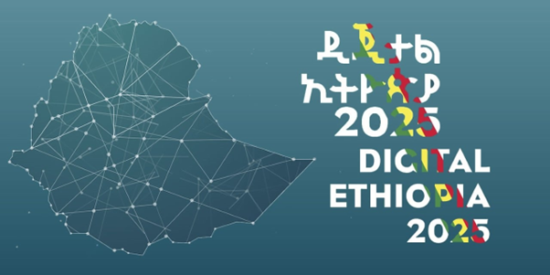Before we start, remind us of the purpose of the i4Policy Foundation?
i4Policy Foundation supports a network of 150 community hubs in 44 countries to co-create strategic visions that support entrepreneurship at national, regional and continental levels. We focus on methodologies for co-creating deliberative, inclusive and participatory user-centered public policies that enable local entrepreneurs to lead change.
In 2018, innovation leaders from 25 countries have come together to create the Innovation Policy Manifesto to inspire policy makers to put in place effective policies to support entrepreneurship. Since then, we have supported policy reform processes in 11 countries and trained government and ecosystem leaders in 20 countries. One of these efforts led to the drafting of the Senegalese and Malian laws on entrepreneurship in 2019.
At the beginning of the pandemic, members of our community wrote an open letter to African leaders, acknowledging their efforts and suggesting additional measures for consideration.
Why did you conduct this study?
The Covid-19 pandemic is a global health emergency that has affected more than 2 million people worldwide and has important implications for the African continent. Policy-makers are faced with unprecedented decisions and no specific prescriptions as they seek solutions to stabilize their economies and minimize public health impacts. The African Union is forecasting negative growth of -0.9% due to reduced trade flows, lower commodity prices and reduced demand for exports (oil, rice, minerals, metals, etc.).
These projections point to an even harsher reality for enterprises and micro, small and medium-sized enterprises (MSEs), which constitute an important part of many African economies.
What is clear is that there is no single approach and that countries need to rely on knowledge of their specific context and industries, as well as adaptive, evidence-based policy-making to find solutions. I mean, in short, each country has a different context. Ghana's needs are different than Rwanda's, and so on. Policy makers should therefore take into consideration the needs of entrepreneurs and small industries in particular. At i4Policy, we truly believe in the co-creation of policies, not only by the government, but also through the engagement of citizen entrepreneurs, to ensure that policy responds to their needs.
Thus, i4Policy Foundation, in collaboration with its partners, Briter, Digital Africa, GIZ and AFD, launched a continent-wide survey of entrepreneurs and entrepreneur support organizations (innovation poles, creation spaces and other facilitators) to quantify and assess the impact on African entrepreneurs and evaluate the strategic measures and interventions in place and needed to support them.
In terms of methodology, what approach was chosen?
Our methodology used qualitative and quantitative data from two online surveys and literature reviews of ongoing policy interventions in African countries.
The surveys targeted three populations - micro, small and medium-sized enterprises (SMEs), high-growth entrepreneurs (a subset of SMEs) and community innovation clusters across the continent. Using a random sampling approach, each population was stratified by income class.
The sampling was twofold: firstly, it focused on SMEs (including high-growth start-ups) and secondly, on Community innovation hubs.
The SME survey covered 649 enterprises in 46 African countries. The sample size was based on the IFC SME dataset of 55 million micro, small and medium-sized enterprises (MSMEs).
The survey of community platforms covered 183 platforms in 42 African countries, with a sample based on an estimated 643 platforms in Africa (Briter).
What are the main findings of your study?
The survey of 649 businesses revealed that 44% of SMEs are threatened with bankruptcy and 39% have just enough working capital to sustain them for the next three months. 75% reported revenue losses and 89% need capital assistance. 39% have had to reduce employees' working hours, 14% have had to lay off workers and 14% have had to reduce their wages. Overall, our survey suggests that employment decreased by 9% on average for SMEs.
The main challenges facing businesses are access to finance, access to markets and business support.
98% believe that entrepreneurs, artists and other innovators have ideas and solutions that can significantly contribute to the response and recovery from this pandemic.
The second survey of 183 Community innovation hubs revealed that 37% of them are at risk of failure and 32% have just enough working capital to sustain them over the next three months.
94% of platforms were actively investing in growth projects prior to the pandemic, but 80% of them were put on hold due to the pandemic. Despite this, platforms continue to support SMEs by providing technical support, training, mentoring, equipment and premises. 74% have committed funds or resources ($17,094 on average) to help address Covid-19.
What does this study reveal about the resilience of African businesses?
African entrepreneurs are resilient and innovative. However, they urgently need flexible financing, business support and resources to access local and international markets. Critical interventions are urgently needed to prevent the failure of these small businesses and the resulting impact on unemployment.
Community platforms and small businesses have begun to pivot, providing COVID-19 solutions and adapting their business models to meet the needs of e-commerce and teleworking.
So how can we strengthen this resilience, how can we better support these companies?
The current i4Policy manifesto proposes a number of strategic recommendations to support the entrepreneurial ecosystem. However, next week we will publish an action plan of urgent solutions to support entrepreneurs over the next two to three months.
Some of these solutions include immediate injections of working capital (loans, grants, credit schemes) and financial support (tax relief, bankruptcy assistance, loan repayments, public procurement programs, etc.).
Senegal, for example, has created a program for SMEs to ensure logistical support from the government to facilitate their development. It is therefore a way of guiding the support of SMEs.
Measures to strengthen the resilience of these units also include business and training assistance, digitization of government services, consolidation and coordination of information on support due to the Covid-19.
Can you better substantiate any of the solutions you recommend?
We know that governments have made efforts to support micro, small and medium-sized enterprises, but we entrepreneurs, innovation leaders and entrepreneurial support organizations still urgently need their support.
Our recent survey shows that 44% of start-ups and SMEs are at risk of closing their doors by August, 89% need financial support and 98% have changed their working relationships with their employees to stay alive. We need immediate policies and actions that improve access to finance and local and regional markets at this critical time.
We urge increased access to working capital and liquidity needed to maintain business operations and retain employees; and better access to our local and regional markets.
This means, in the first instance, working with banks, venture capital organizations, development partners and other financial actors to provide guarantee funds, soft loans and credit schemes with flexible repayment plans, performance financing, working capital grants through tax authorities that cover employee salaries, and other forms of alternative financing for SMEs.
Secondly, speeding up the settlement of public procurement invoices to businesses and increasing access to public procurement for MSMEs and start-ups (unbundling of large contracts, facilitating e-procurement and digital platforms for tendering, removal of administrative procedures, etc.).
Similarly, the payment of taxes for start-ups and SMEs should be exempted or staggered (income tax, corporation tax, value added tax (VAT), etc.).
We must also create temporary procedures to speed up bankruptcy and insolvency formalities for start-ups and SMEs in difficulty and provide advisory services to those at risk of bankruptcy, i.e. raise awareness of the process and propose alternatives to insolvency.





